

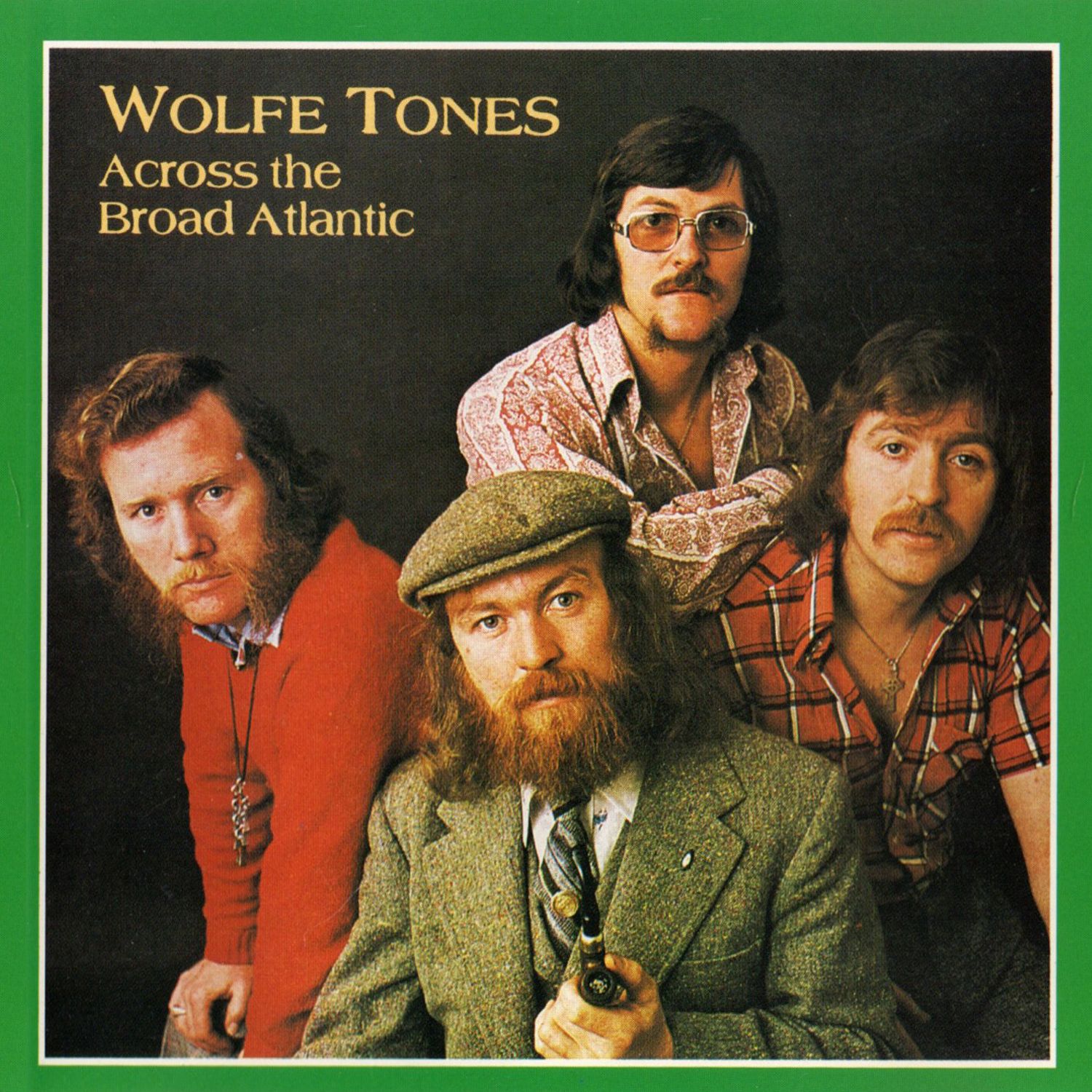 |
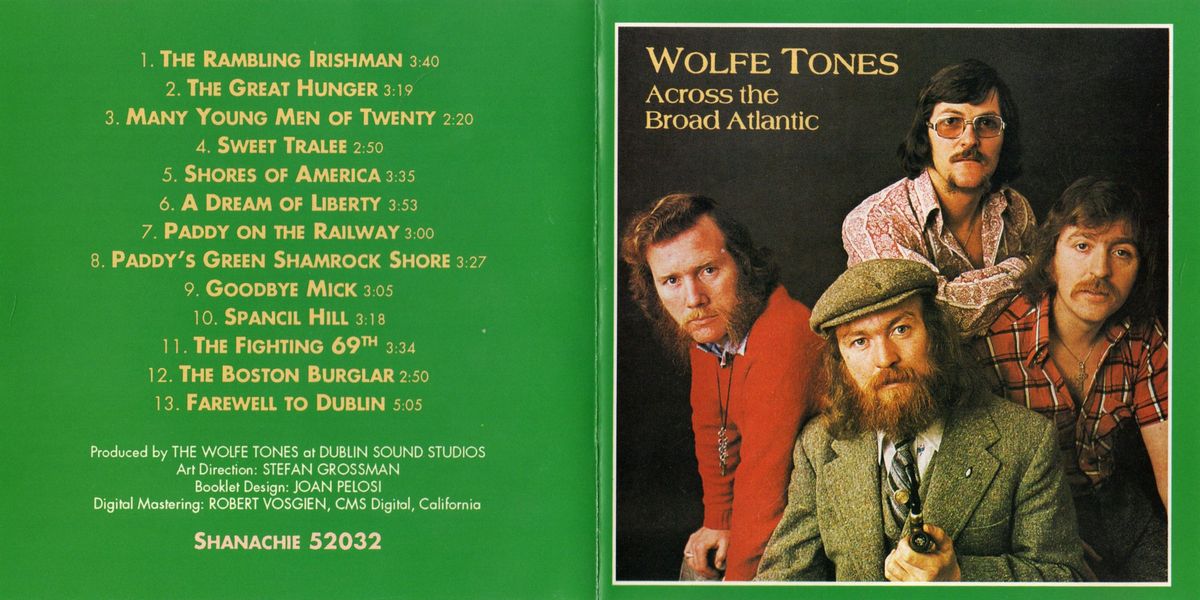
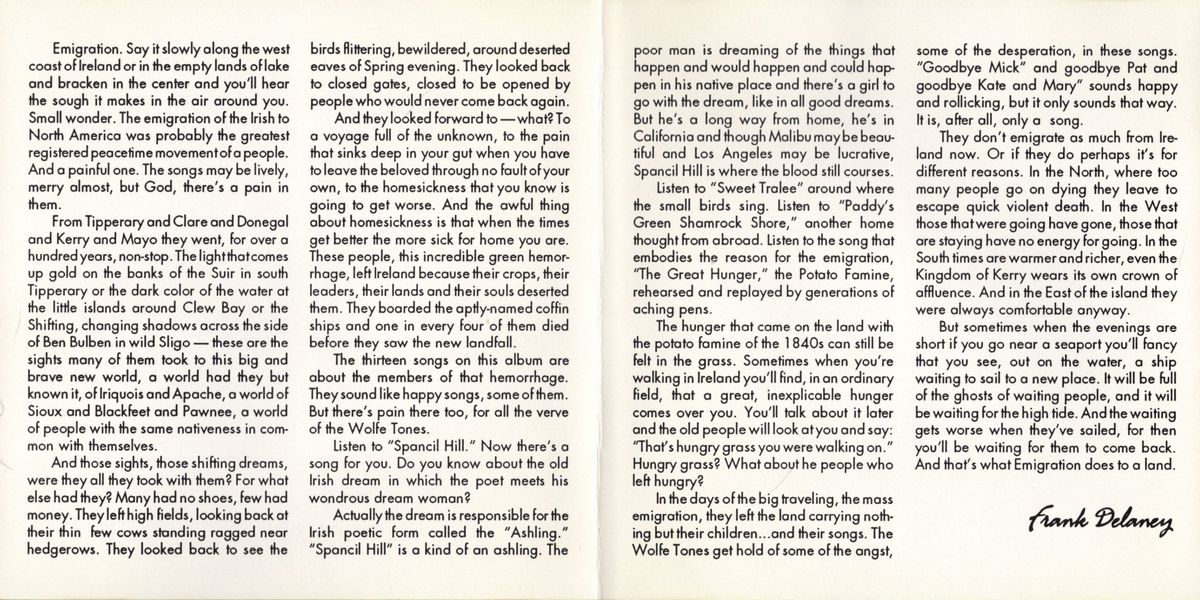 |
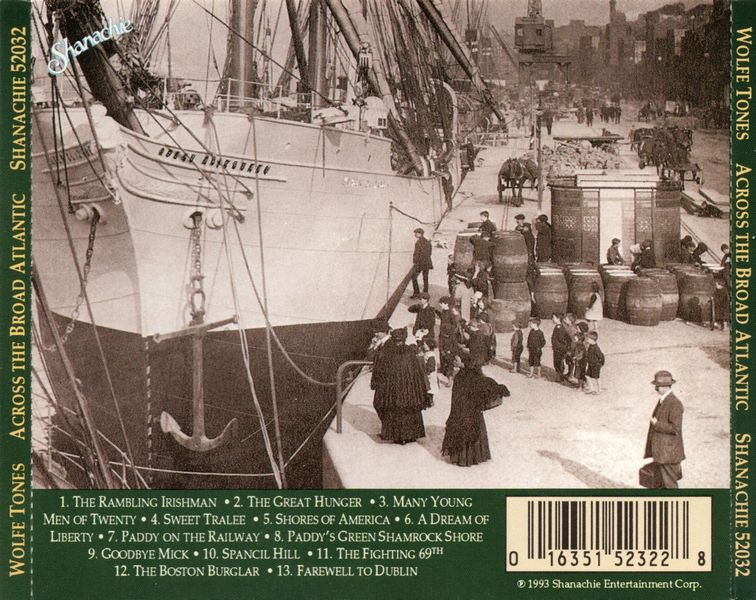
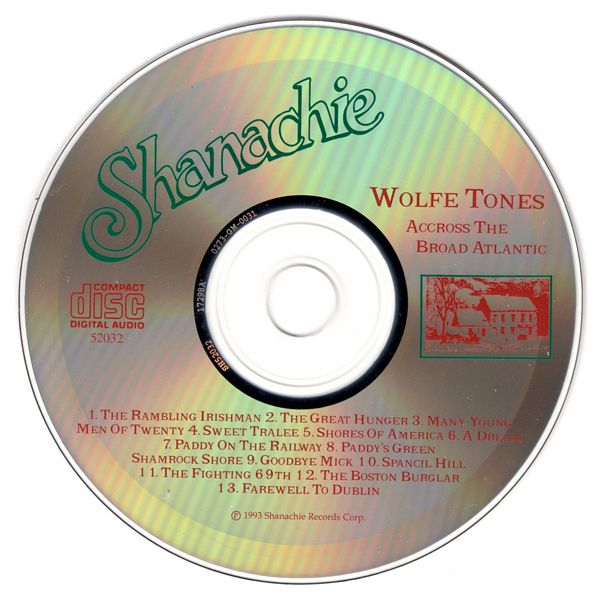 |
Sleeve Notes
Emigration. Say it slowly along the West coast of Ireland or in the empty lands of lake and bracken in the centre and you'll hear the sough it makes in the air around you. Small wonder. The emigration of the Irish to North America was probably the greatest registered peacetime movement of a people. And a painful one. The songs may be lively, merry almost, but God, there's a pain in them.
From Tipperary and Clare and Donegal and Kerry and Mayo they went, for over a hundred years, non-stop. The light that comes up gold on the banks of the Suir in south Tipperary or the dark colour of the water at the little islands around Clew Bay or the shifting, changing shadows across the side of Ben Bulben in wild Sligo — these are the sights many of them took to this big and brave new world, a world had they but known it, of Iriquois and Apache, a world of Sioux and Blackfeet and Pawnee, a world of people with the same nativeness in common with themselves.
And those sights, those shifting dreams, were they all they took with them? For what else had they? Many had no shoes, few had money. They left high fields, looking back at their thin few cows standing ragged near hedgerows. They looked back to see the birds flittering, bewildered, around deserted eaves of Spring evening. They looked back to closed gates, closed to be opened by people who would never come back again.
And they looked forward to — what? To a voyage full of the unknown, to the pain that sinks deep in your gut when you have to leave the beloved through no fault of your own, to the homesickness that you know is going to get worse. And the awful thing about homesickness is that when the times get better the more sick for home you are. These people, this incredible green haemorrhage, left Ireland because their crops, their leaders, their lands and their souls deserted them. They boarded the aptly-named coffin ships and one in every four of them died before they saw the new landfall.
The thirteen songs on this album are about the members of that haemorrhage. They sound like happy songs, some of them. But there's pain there too, for all the verve of the Wolfe Tones.
Listen to "Spancil Hill". Now there's a song for you. Do you know about the old Irish dream in which the poet meets his wondrous dream woman?
Actually the dream is responsible for the Irish poetic form called the "Ashling". "Spancil Hill" is a kind of an ashling. The poor man is dreaming of the things that happen and would
happen and could happen in his native place and there's a girl to go with the dream, like in all good dreams. But he's a long way from home, he's in California and though Malibu may be beautiful and Los Angeles may be lucrative Spancil Hill is where the blood still courses.
Listen to "Sweet Tralee" around where the small birds sing. Listen to "Paddy's Green Shamrock Shore", another home thought from abroad. Listen to the song that embodies the reason for the emigration, "The Great Hunger", the Potato Famine, rehearsed and replayed by generations of aching pens.
The hunger that came on the land with the potato famine of the 1840's can still be felt in the grass. Sometimes when you're walking in Ireland you'll find, in an ordinary field, that a great, inexplicable hunger comes over you. You'll talk about it later and the old people will look at you and say: "That's hungry grass you were walking on". Hungry grass? What about the people who left hungry?
In the days of the big travelling, the mass emigration, they left the land carrying nothing but their children . . . and their songs. The Wolfe Tones get hold of some of the angst, some of the desperation, in these songs. "Good-bye Mick and good-bye Pat and good-bye Kate and Mary" sounds happy and rollicking, but it only sounds that way. It is, after all, only a song.
They don't emigrate as much from Ireland now. Or if they do perhaps it's for different reasons. In the North, where too many people go on dying they leave to escape quick violent death. In the West those that were going have gone, those that are staying have no energy for going. In the South times are warmer and richer, even the Kingdom of Kerry wears its own crown of affluence. And in the East of the island they were always comfortable, anyway.
But sometimes when the evenings are short if you go near a seaport you'll fancy that you see, out on the water, a ship waiting to sail to a new place. It will be full of the ghosts of waiting people, and it will be waiting for the high tide. And the waiting gets worse when they've sailed, for then you'll be waiting for them to come back. And that's what Emigration does to a land.
Frank Delaney